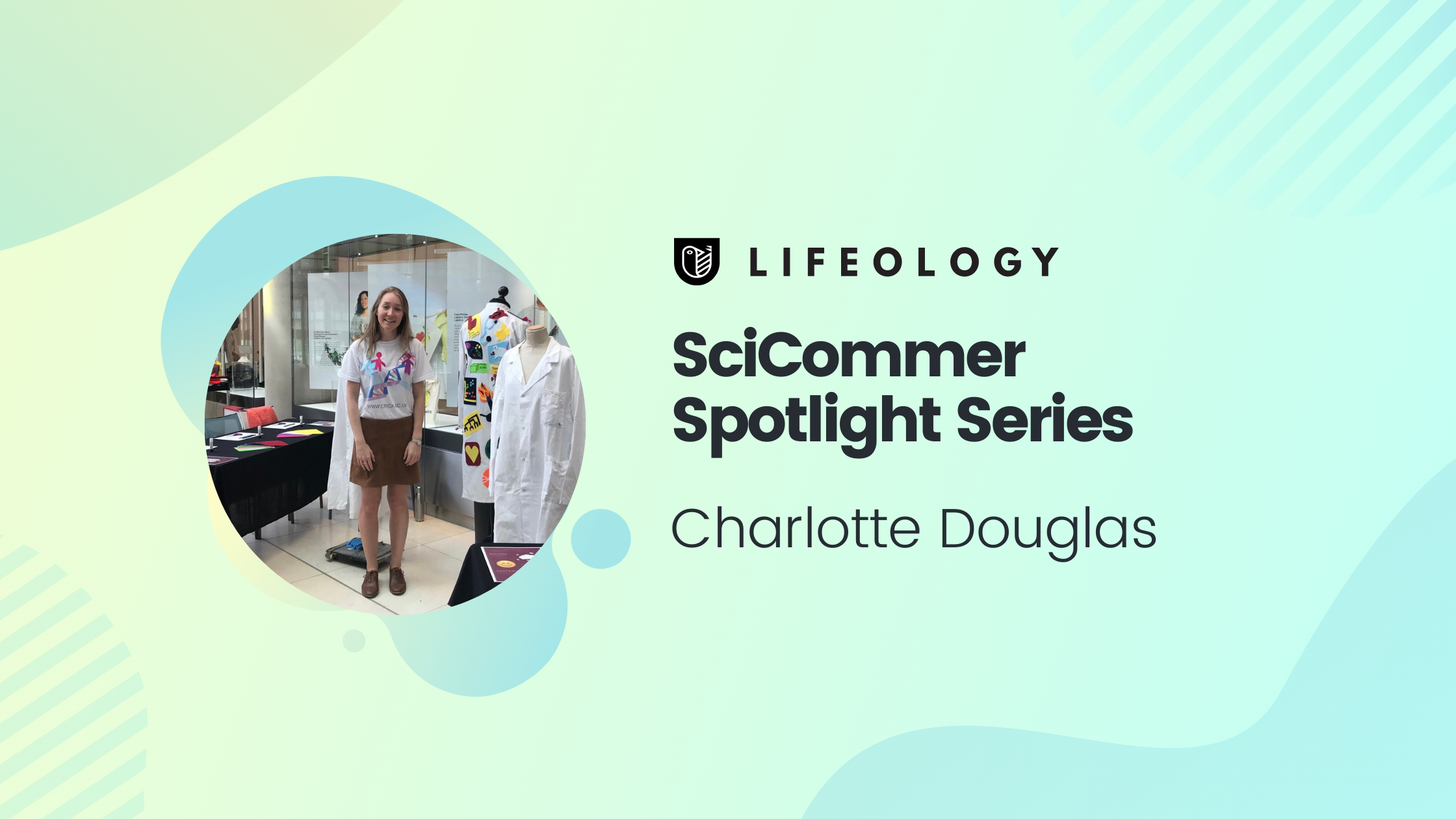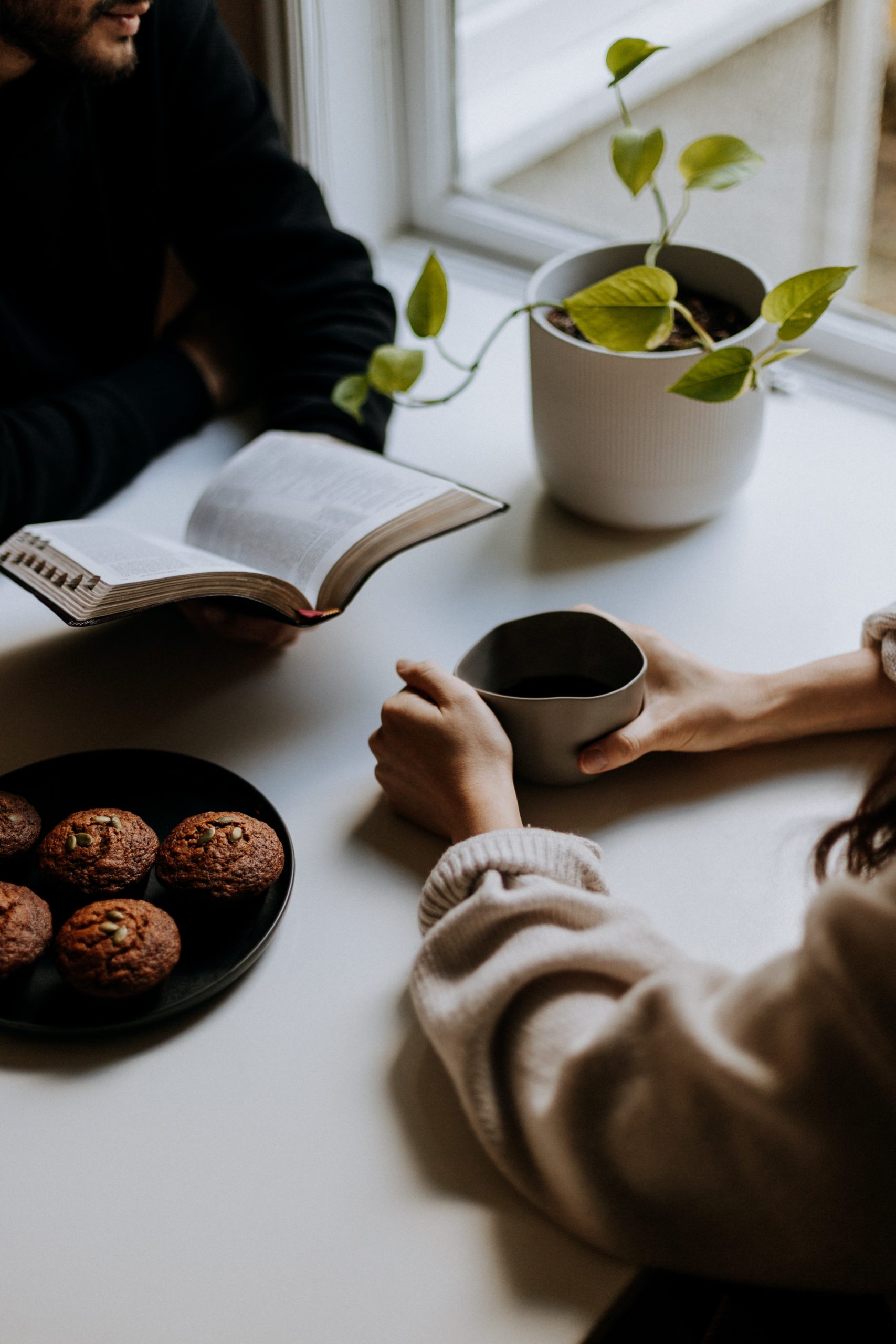We hear a variety of answers to the question: “Why SciComm?” No two SciComm careers look the same! If you’re interested in SciComm, there’s room for you here! If you want to pivot within the SciComm space, there’s room for that, too! Find what interests you with the help of hearing from a variety of SciCommers. Many have left the lab bench for a chance to expand their scientific knowledge beyond their single area of expertise. Others still work as scientists but engage with and serve the public through science communication. Some people even knew early on that they wanted to pursue science communication. We bring you all these stories and the stories in between in our SciCommer Spotlight Series. In this series of blog posts, learn about science communicators’ career paths, their favorite SciComm projects, and why they participate in SciComm. There’s also some advice for aspiring SciCommers!
Meet Charlotte Douglas!

Tell us a little bit about yourself
I’m currently a post-doctoral fellow in Dr Deborah Bourc’his’ lab at the Institut Curie in Paris. Before moving to France, I carried out my PhD studies at the Francis Crick Institute in London in Dr James Turner’s lab, and did an internship at a press office called the Science Media Centre. I’ve been lucky to have quite broad and varied scientific projects, but my main research expertise has been in genetics, developmental biology and CRISPR genome editing. I’d say I’ve been involved in science communication at some level throughout my PhD and my postdoc, whether this be at scientific conferences in my field through to more family-orientated Discovery Days or even science in the pub at Pint of Science!
Did you always want to be a SciCommer?
I’ve always enjoyed talking about science, right from my early days at school volunteering in biomedical hospital departments. I loved to ask lots of questions and then tell people about what I learnt. When I started my PhD I soon discovered that the translatable “real world” aspects of my genetics project were really inspiring to me. I really feel that people are interested in what goes on “behind the scenes” in the laboratory, and I Ioved having opportunities to share some of the experiments I’d been doing and questions I’d been investigating.
My PhD project, and to some extent my post-doc now, also involved a great deal of CRISPR genome editing, so I got into some fascinating conversations with people about the future of “superhumans”, “designer babies” and suchlike. In fact one of my favourite SciComm events was “Science on Screen” where the Crick Institute showed the movie Gattaca and I was part of a panel answering Q&As on the future of genome editing. I’m always extremely interested to hear other people’s thoughts and feelings regarding this field!
There’s a lot of different careers within SciComm. How did you choose which direction you wanted to go?
I’m currently still working in the laboratory full-time, so the majority of SciComm for me is working around my experiments and everything that goes along with being a post-doc. Previously I’ve been more involved with SciComm speaking and in-person interactive events, but recently I’ve loved getting more experience writing, and even published an article recently with Life Apps which was a really great experience (thanks!). I love to be able to get a broad range of different SciComm experiences, I’m not really tied down to one area, as I really feel they’re all so rewarding and require totally different skills!
What’s been your favorite part about working in SciComm?
For me definitely the best thing about SciComm is the incredible diversity of people you get to meet. Everytime I come away from a SciComm event I’ve learnt something new, had some fascinating conversations, and hopefully the audience has taken away some new facts too!
What do you think is your most important job as a SciCommer?
To make sure that you’ve fact checked! Most of the SciComm events I’ve been involved in have been focused around my own research or field, which has definitely made my life a little easier to research any topic backgrounds! Recently I’ve really enjoyed branching out into other topics, inspired by my decision to change fields for my post-doc research project. I’ve loved learning new areas, but I just take some extra time to make sure I have good sources and references for any facts I say.
Tell us about your favorite SciComm project
I’ve been lucky to be involved in so many great SciComm projects, but one of the earliest events which was so memorable for me was Pint of Science. It was set up in 2013, and I got involved a few years later in 2016 at a Pint of Science festival run by the Crick Institute public engagement team. I gave an interactive talk on “How to make a baby” with a co-PhD student in an atmospheric pub in North London, using balloons to represent eggs and sperm, explaining how the early embryo develops. A few years later I got involved again co-hosting a 3-evening event. We had some great fun audience-involved games, such as “spot the difference” between frog embryos that carry mutations on different genes. It was so memorable seeing the audience interacting directly with us in such a different environment compared to the lab – I definitely recommend checking out Pint of Science, they run events globally now!
What advice do you have for aspiring SciCommers?
Practice definitely makes perfect and take criticism well – see if your friends would mind reading your articles or watch you practice your talks. They always have great advice and see something you might have missed, even if it’s just a spelling mistake or they don’t love your colour scheme!




